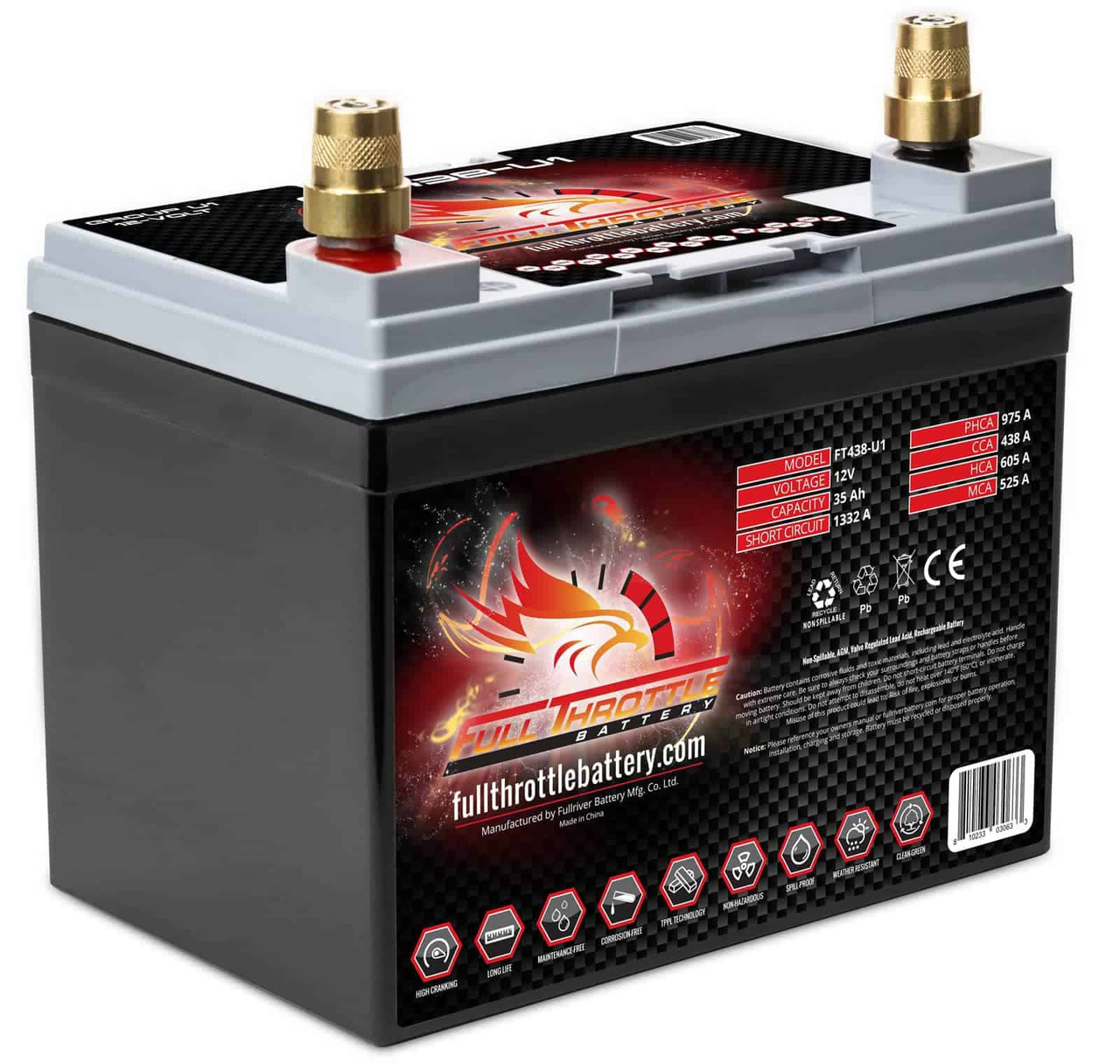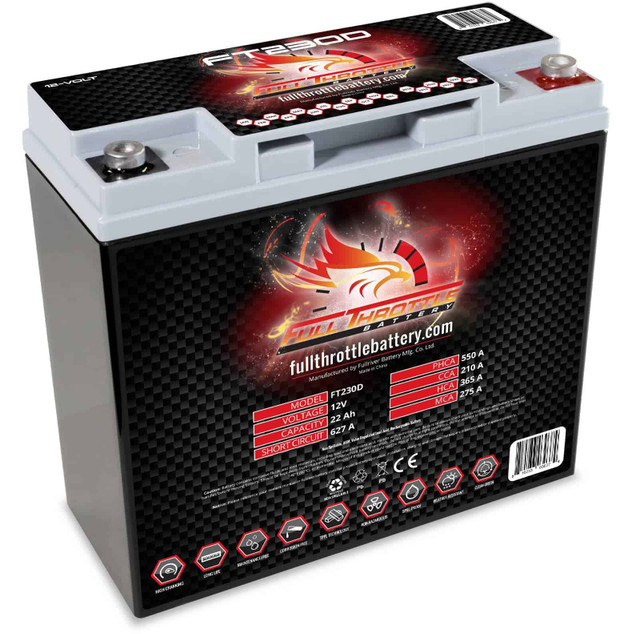What Are Cold Cranking Amps?
13th Aug 2024

Ever wondered why some cars struggle to start on cold winter mornings while others start effortlessly? The answer often lies in Cold Cranking Amps (CCA). This rating is crucial for ensuring your vehicle has the power to start in cold weather.
In this blog, we'll explore what Cold Cranking Amps (CCA) really means and why it's essential for your car, especially in winter. We’ll examine how CCA affects battery performance and how to select the best battery for your needs based on this rating.
Understanding CCA can help you avoid those chilly morning car troubles. Let’s firs discover the basics of car batteries and
What Are Cold Cranking Amps?
Cold Cranking Amps (CCA) is a critical measurement for car batteries, especially in colder climates. It indicates the battery’s ability to start an engine in cold conditions by measuring how many amps a 12-volt battery can deliver at 0 degrees Fahrenheit for 30 seconds while maintaining a voltage of at least 7.2 volts.
A battery with a higher CCA rating is more capable of starting a vehicle in cold weather. At lower temperatures, the chemical reaction in the battery that generates electricity slows down, decreasing power output. A high CCA rating ensures the battery can still perform well under these conditions, providing enough current to turn the engine over even when it’s bitterly cold.
Understanding CCA is crucial when selecting a replacement battery for your vehicle. If you live in a region with harsh winters, opting for a battery with a high CCA rating ensures reliable starts on cold mornings. It’s also important to balance a higher CCA with other battery specifications to match your vehicle’s requirements and ensure optimal performance.
Cold Cranking Amps Battery Chart
The Cold Cranking Amps (CCA) rating of a battery measures its ability to start a vehicle at 0 degrees Fahrenheit. Below is a chart to help you select the appropriate CCA rating based on your vehicle type and typical usage.
| Vehicle Type | CCA Rating | Typical Uses |
| Small Car | 350-450 CCA | Ideal for compact cars and small sedans |
| Medium Car | 450-550 CCA | Suitable for midsize sedans and small SUVs |
| Large Car | 550-650 CCA | Great for full-size sedans and large SUVs |
| Truck | 650-750 CCA | Perfect for light trucks and large SUVs |
| Commercial | 750-900+ CCA | Necessary for heavy-duty trucks and commercial vehicles |
The below table illustrates the challenges of starting a vehicle in colder conditions, where the power available from the battery decreases with falling temperatures, and the power required to crank the engine increases.
| Temperature Condition | Available Power from Battery | Power Required to Crank Engine |
| Hot (e.g., 27°C) | 100% | 100% |
| Cool (e.g., 0°C) | 65% | 150% |
| Cold (e.g., -18°C) | 40% | 210% |
| Very Cold (e.g., -29°C) | 25% | 350% |
Cold Cranking Amps vs Marine Cranking Amps
Cold Cranking Amps (CCA) and Marine Cranking Amps (MCA) are measurements used to evaluate battery performance, but they serve different purposes and are measured under different conditions.
Cold Cranking Amps (CCA)
- Definition: CCA is a measurement of the number of amps a battery can deliver at 0 degrees Fahrenheit for 30 seconds while maintaining a voltage of at least 7.2 volts.
- Purpose: It is designed to provide an indication of a battery’s ability to start an engine in cold weather. The higher the CCA rating, the better the battery performs in cold temperatures.
- Use: Primarily used for automotive batteries, especially in regions with cold climates where engines require significant power to overcome thicker oil and slower chemical reactions within the battery.
Marine Cranking Amps (MCA)
- Definition: MCA, also known as Cranking Amps (CA), refers to the number of amps a battery can deliver at 32 degrees Fahrenheit for 30 seconds while maintaining a voltage of at least 7.2 volts.
- Purpose: The MCA rating is typically higher than the CCA because it is measured at a warmer temperature where the battery performs better. This rating is more relevant to marine environments which tend to be less cold than typical automotive settings.
- Use: MCA is crucial for marine batteries, as boats require a battery that can start engines reliably in a wet, typically milder environment and often power additional marine accessories.
Key Differences
- Temperature of Measurement: CCA is measured at 0 degrees Fahrenheit, emphasizing performance in colder conditions. MCA is measured at 32 degrees Fahrenheit, focusing on slightly warmer conditions more typical of marine settings.
- Application: CCA is critical for vehicles in cold-weather environments, whereas MCA is tailored towards marine applications, where conditions are generally less harsh but still require robust starting power.
How To Check Cold Cranking Amps?
Checking the Cold Cranking Amps (CCA) of a car battery is important for ensuring it can reliably start your vehicle, especially in cold weather. While you cannot directly measure the CCA of a battery without specialized equipment, you can assess its health and approximate its CCA capability through a few different methods. Here’s how to do it:
Method 1: Visual Inspection of the Battery
- Check the Label: Most batteries have a label indicating their CCA rating. This is the manufacturer's measurement of the battery's ability to start an engine in cold conditions.
- Inspect for Wear: Look for any signs of corrosion, damage, or leaks. A battery in poor physical condition may not perform up to its CCA rating.
Method 2: Use a Multimeter to Check Voltage
- Measure Voltage: Set a multimeter to measure voltage and connect it to the battery terminals while the car is off. A fully charged battery should read around 12.6 volts or more.
- Assess Health: A voltage significantly lower than 12.6 volts might indicate that the battery is undercharged or failing, which can affect its CCA performance.
Method 3: Perform a Load Test
- Use a Load Tester: This tool applies a specific load equivalent to the battery's CCA rating for 15 seconds and then measures the voltage drop. It can directly test whether the battery can handle its rated load at cold temperatures.
- Interpret Results: The voltage should not drop below 9.6 volts during the test in normal weather conditions. A lower reading can indicate reduced CCA capability.
Importance of Cold Cranking Amps
The Cold Cranking Amps (CCA) rating influences how well your vehicle starts in low temperatures and impacts overall battery performance and longevity. Here are three key reasons why the CCA rating is vital for any car owner:
1. Ensures Reliable Cold Weather Starts
CCA measures the battery's ability to start an engine at 0 degrees Fahrenheit. Higher CCA ratings are crucial for ensuring your vehicle can start reliably in cold weather, preventing the inconvenience and potential danger of a car that won't start on a cold morning.
2. Supports Modern Vehicle Demands
Modern vehicles come equipped with multiple electronic features that require power before the engine even starts. A battery with a sufficient CCA rating ensures that these features can function properly without compromising the battery's ability to start the engine, especially important for vehicles with high electronic demands, like those with heated seats or advanced infotainment systems.
3. Increases Battery Longevity and Efficiency
A battery that comfortably meets or exceeds the recommended CCA rating operates more efficiently and tends to last longer. This reduces the overall maintenance and replacement costs and ensures that the battery does not become a frequent concern, offering peace of mind and enhanced vehicle performance.
Shop Quality Batteries With JB Tools
Ensuring your vehicle operates smoothly and reliably starts with choosing the right battery. At JB Tools, we offer a wide selection of quality batteries that meet diverse automotive needs, including those requiring high Cold Cranking Amps (CCA) for cold weather reliability. Our inventory features top brands known for durability and performance, so you can find the perfect battery to keep your car starting quickly and running efficiently, no matter the conditions.
Conclusions
In conclusion, understanding Cold Cranking Amps (CCA) is crucial for ensuring your vehicle starts reliably in cold weather and supports modern vehicle demands without compromising battery health. Selecting a battery with the appropriate CCA rating is essential for optimal performance and longevity. Regularly checking and maintaining your battery can prevent cold weather start-up issues and enhance overall vehicle safety and reliability.





